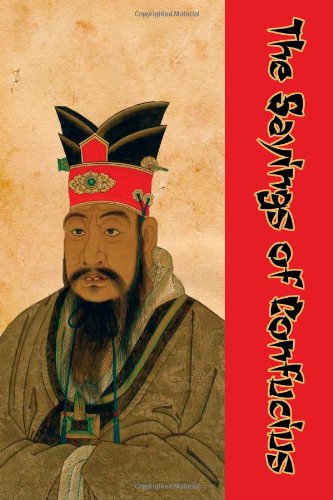
Promoting virtues such as filial devotion, compassion, loyalty, and propriety, these dialogues between the ancient Chinese philosopher Confucius and his disciples comprise the crux of Confucianism. Put faithfulness and truth first; have no friends unlike thyself; be not ashamed to mend thy faults. Wisdom has no doubts; love does not fret; the bold have no fears. To rank the effort above the prize may be called love. There may be men that do things without knowing why. I do not. To hear much, pick out the good and follow it; to see much and think it over; this comes next to wisdom. When a bird is dying his notes are sad; when man is dying his words are good.

don’t quite understand Some translation seems to be too simple and the readers might not know what it says. for instance, when i read that Confucius says “at thirty i could stand; at forty, i had no doubts; at fifty, i understand the heavenly Bidding; at sixty, my ears were opened “, i don’t understand what it means. Meanwhile, i read from other resources and i got this: “at thirty I began to stand firm on my own feet; in my forties I was free from puzzlement; when I turned fifty I had come to perceive destiny; by the age of sixty I had been all ears to different opinions”. Now i understand.
Not quite what I was expecting There are a few real gems sprinkled throughout this book, the problem is that you have to dig through a great deal of tedious and seemingly random bits to find them all. If you’re truly interested in Confucius and his disciples then this might interest you, but if all you’re seeking is common-sense wisdom and quotes then you’d be better off finding something that’s a touch more relevant and concise.